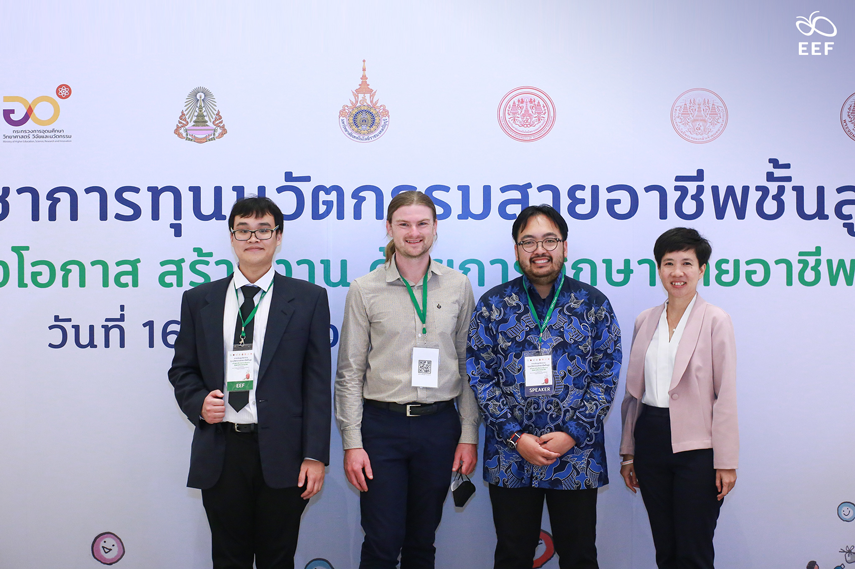
Workshop: Innovations in Mental Health Support for Vocational Education and Training (VET) Students By Rafi Armanto, Peer Work Project Officer, and James Whiting, Career Projects Innovation Lead, Employment & Education Partnerships, ORYGEN
Mental ill-health in youth is a very important problem in Australia. A survey conducted by the Australian Bureau of Statistics (ABS) indicates that two out of five Australian youth aged 16 to 24 years old, or 39.6%, have experienced some kind of mental ill-health. As an organization working on promoting the mental health of Australian youth, ORYGEN has come up with innovations to support young people with such problems. Two of their innovations presented in the workshop were 1) mental health peer work for international students and 2) digital support systems developed by the ORYGEN Digital Department, including the Virtual Reality and Moderated Online Social Therapy (MOST) platform.
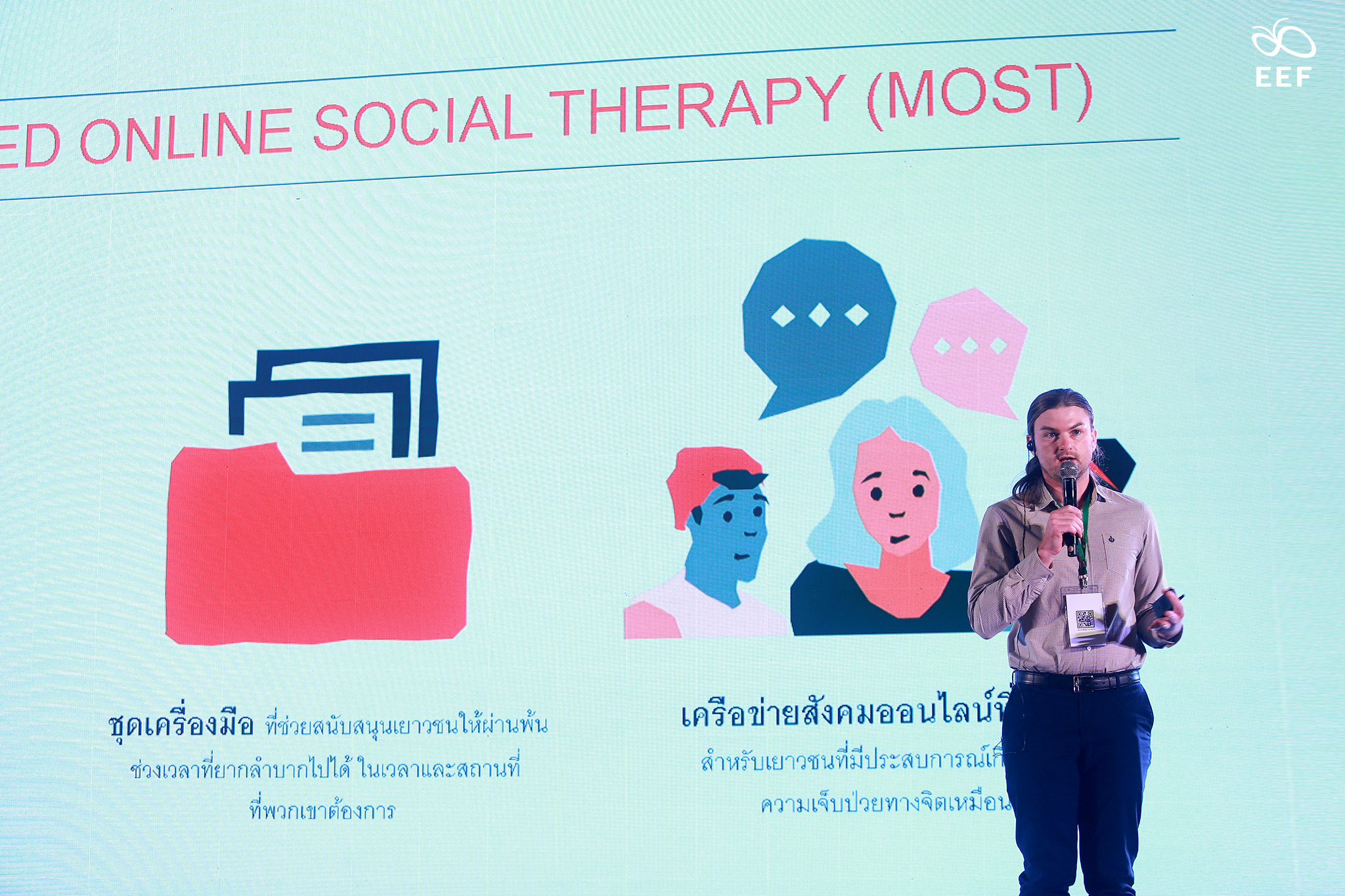 James Whiting, Career Projects Innovation Lead, Employment & Education Partnerships, ORYGEN
James Whiting, Career Projects Innovation Lead, Employment & Education Partnerships, ORYGEN
Mental health peer work for international students aims to support young people with mental illness through a “friend helping friend” approach. The peer workers, or people who have lived through and overcome mental problems, act as counselors for international students facing the problem by sharing and hearing each other’s experiences in a friendly environment. Peer workers are recruited and trained on how to share their own experiences and the appropriate language used in talking about mental illness, as well as how to refer people with severe issues to the next level of support. This peer work program is conducted by a partnered network of providers, which includes Melbourne Polytechnic, RMIT University, Study Melbourne, and ORYGEN.
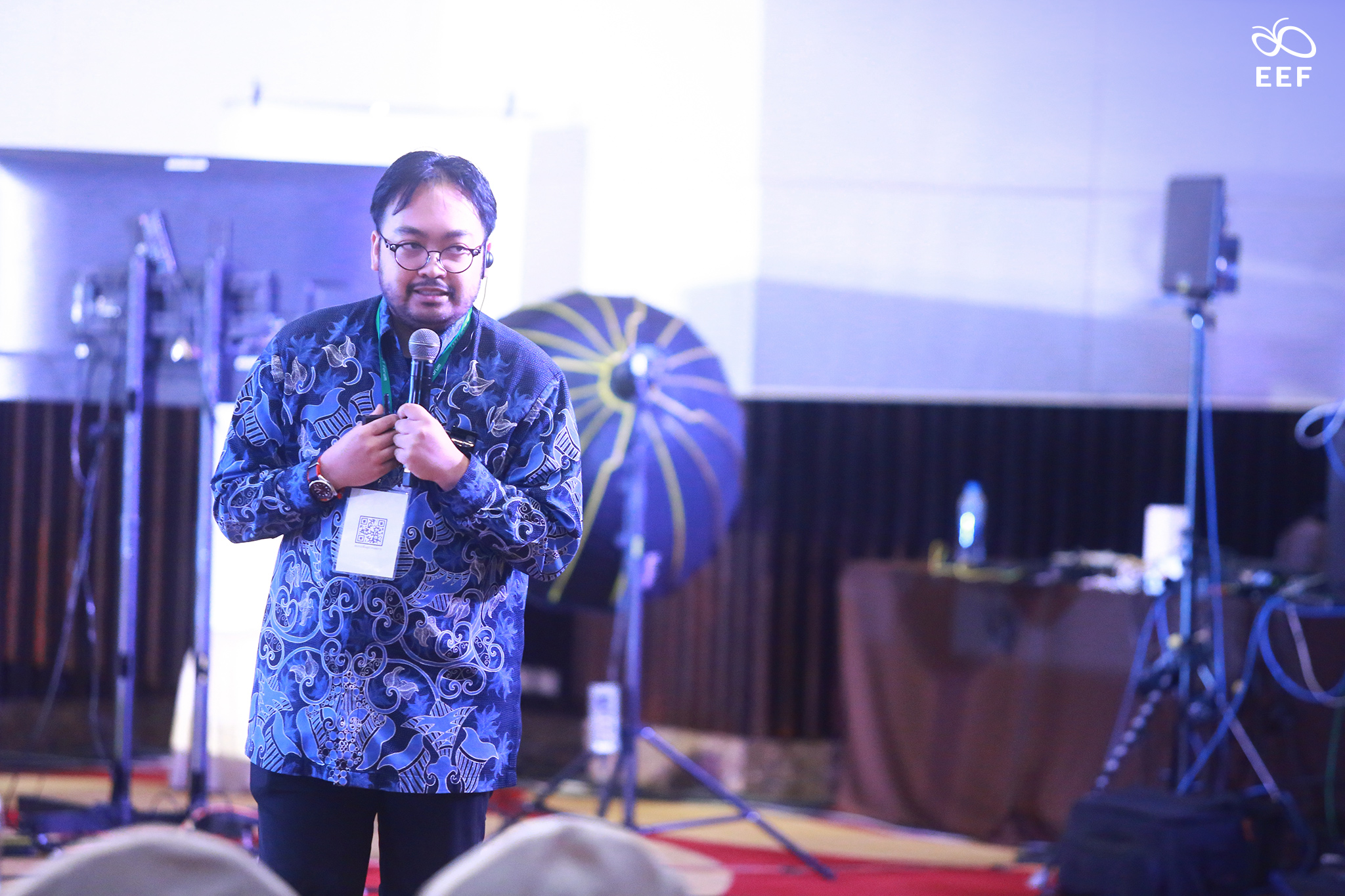 Rafi Armanto, Peer Work Project Officer, ORYGEN
Rafi Armanto, Peer Work Project Officer, ORYGEN
ORYGEN’s mental health virtual reality (VR) system contains simulated real-world situations that some young people might find difficult to deal with mentally. Through a VR headset, the patient is faced with these simulated situations, such as job interviews or simply buying a drink in a coffee shop. Mental health professionals play the roles of people in such circumstances and interact with the patient. Then the patient’s mental illness is assessed, and a treatment program is tailored to match the specific individual. This VR system has been used in real clinical settings and has been very well received. Another innovation is the MOST platform, which is an application and website offering on-demand mental health support for young people. The main parts of this platform include a safe and moderated social network for interacting with other people and peer workers, personalized therapy pathways that can be individually learned and implemented anywhere at any time, and education and career counseling for youth. All content throughout MOST is evidence-based, supported by research, and thoroughly moderated by professionals. MOST should be regarded as an adjunct to primary clinical treatment. Patients on the waiting list for clinical treatment can access initial support. It is also a rich source of counseling during the treatment and helps prevent a relapse of symptoms after completing the treatment.
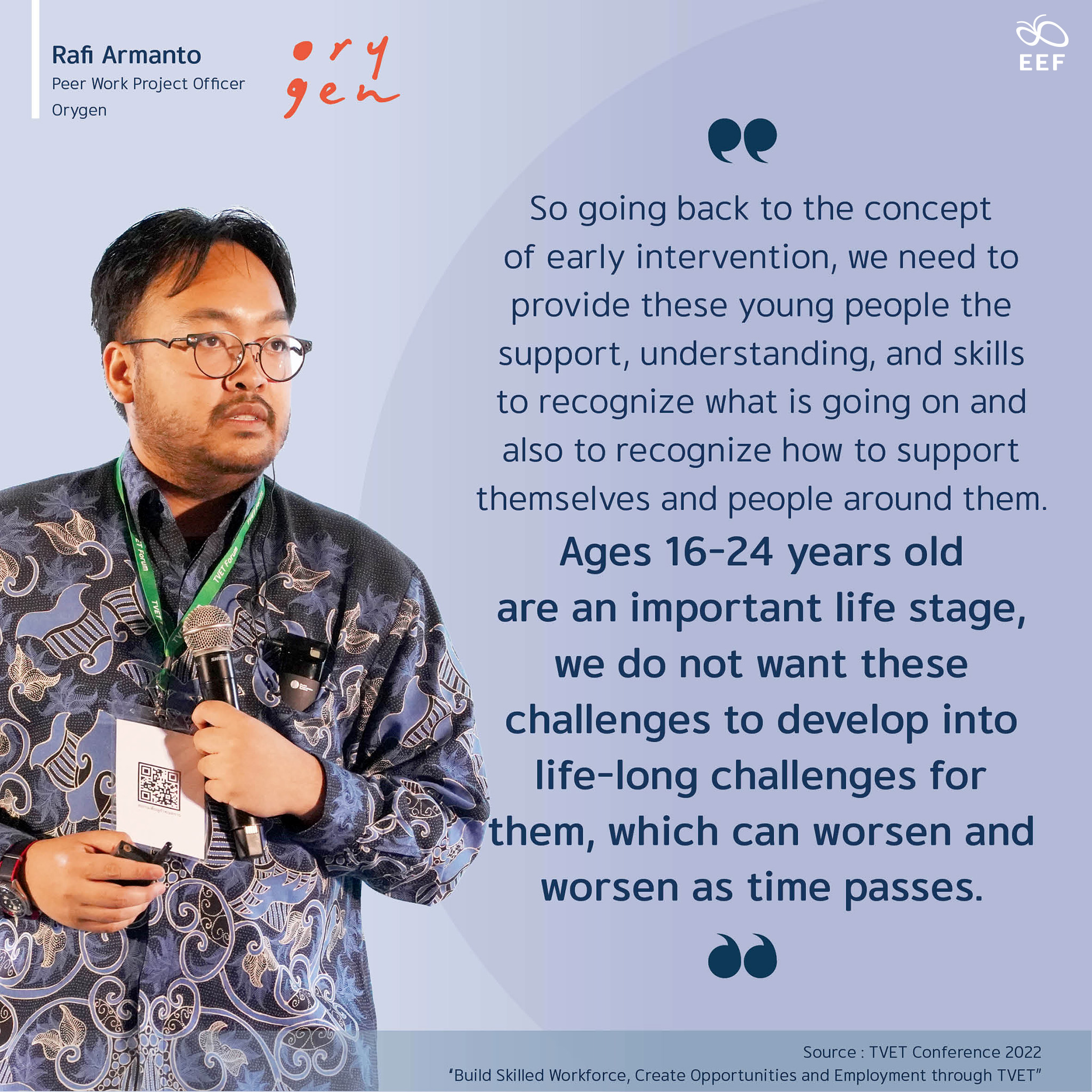
The main challenge to implementing these innovations in mental health support in the Thai TVET system is the lack of knowledge, understanding, and proper attitude about mental health in the involved organizations. This leads to funding for mental health issues not being prioritized. Some of the involved personnel overlook the issue, lack understanding of the issue, and do not have an approach to supporting people with such an issue. More importantly, some people in Thai culture consider mental health issues to be severe illnesses and believe that people with mental illnesses should be marginalized in society.
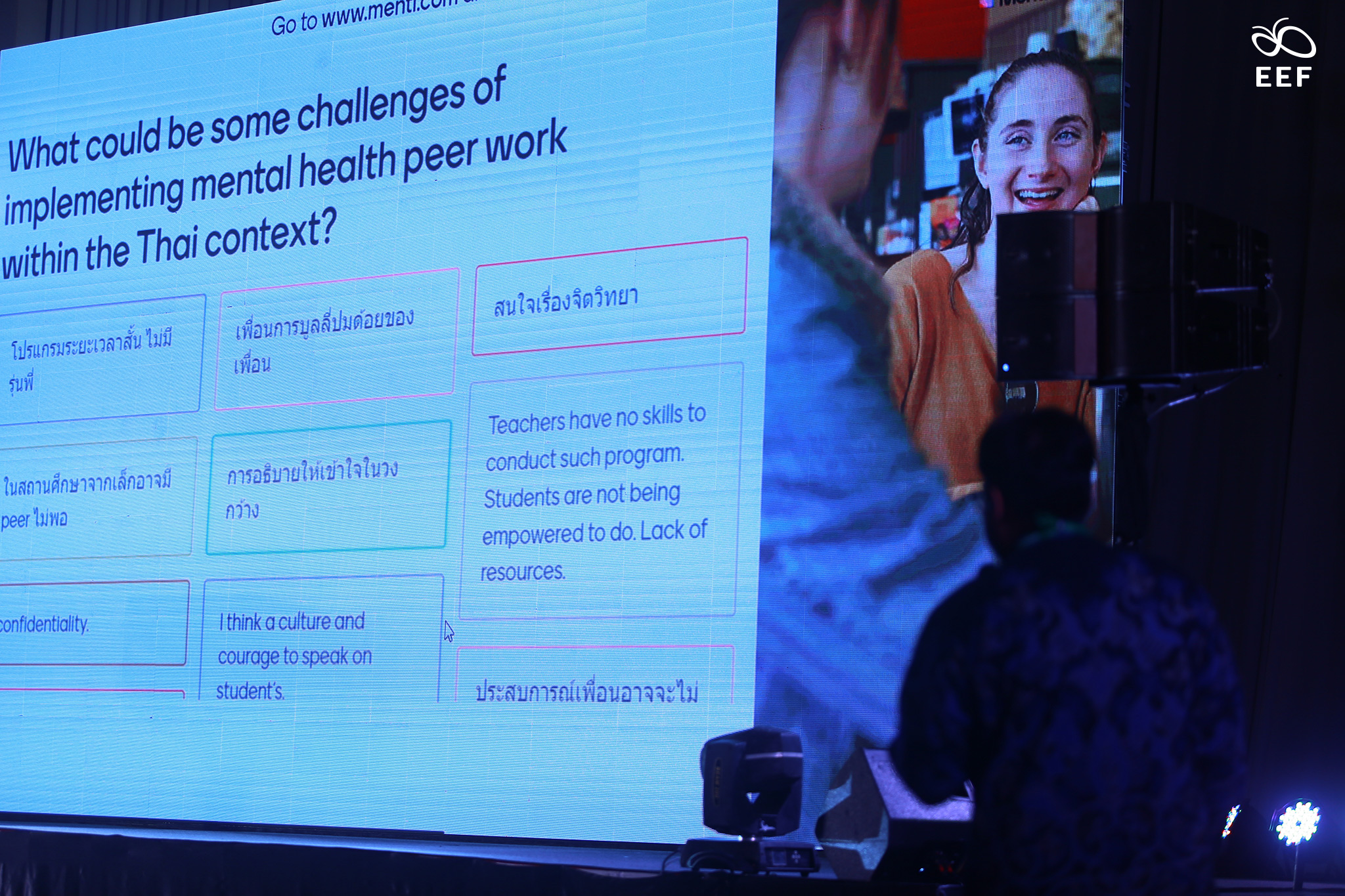 Breakout Room 1: Innovations in mental health support for vocational education and training (VET) students
Breakout Room 1: Innovations in mental health support for vocational education and training (VET) students
Source:

